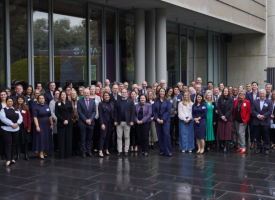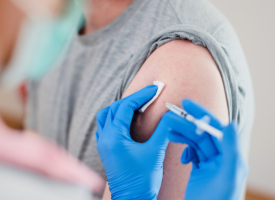AMA(SA) and RDASA finalise new agreement for rural GPs
AMA(SA) and the Rural Doctors’ Association of South Australia (RDASA) have successfully negotiated a new agreement for rural GPs with SA Health’s Rural Support Service (RSS).

Health Minister Chris Picton announced the agreement in a media release this morning.
AMA(SA) President Dr John Williams led the discussions for AMA(SA) with RDASA President Dr Bill Geyer and former RDASA President Dr Peter Rischbieth.
The agreement was negotiated with RSS on behalf of the six regional local health networks (LHNs).
It represents the successful conclusion of formal negotiations that commenced late in 2022 and included months of consultation.
Dr Williams said it is hoped the new four-year deal will encourage more GPs in Adelaide and interstate to consider a move to regional South Australia, where doctors are in high demand.
The new rates will start on 1 February 2024 and will be indexed annually.
‘This agreement is one – very important – component of the many that we are exploring to secure a long-term rural health workforce and improve rural health services for our patients and communities,’ Dr Williams said.
‘We are also working with government, universities and the profession to determine how other initiatives, including the single employer model, support for rural transfers, and capitalising on telehealth, can provide equitable care in and for our regional communities.
‘Our advocacy on issues such as the new payroll tax interpretation, pharmacy prescribing of UTI medication, antimicrobial resistance and vaping also has ramifications for our rural and our metropolitan members, colleagues and patients.’
AMA(SA) and RDASA collaboration essential
Dr Williams said the collaboration between AMA(SA) and the RDASA has been critical throughout the process, as it was during prolonged contract negotiations in 2021.
‘We thank Minister Picton and Cabinet for attending to this issue in such a timely manner, and the RSS for its efforts in bringing the negotiated terms into this agreement.
‘The sustainability and growth of rural communities depends on the healthcare that families and individuals know they will receive in these communities. This agreement is a crucial step in establishing and retaining the clinical workforce we all need to deliver world-class care.
‘We are particularly appreciative that there is now a recognition and facility within the agreement to pay rural doctors to provide supervision and training for junior doctors in the regions. This ensures the next generation of doctors will learn and understand what it means to serve our communities as rural generalists, and with this foundation are more likely to stay in the regions to pursue rural medicine as a career.’
Dr Williams also thanked Andrew Lewis of the Federal AMA for his industrial relations expertise throughout the negotiation period.
Contract provisions
As part of the SA Health Rural GP Agreement 2024-28 (GPA), there will be a significant increase of 3% to sessional rates, which reflects the significant work and contribution that rural GPs provide their regional communities.
Other terms include:
- a rural attraction payment of up to $50,000 for new GPs who are beginning practice and providing hospital services, which will be extended to more regional sites
- a new payment of up to $10,000 will be offered to encourage new doctors into 32 country towns including Mount Pleasant, Kapunda, Eudunda, Barmera, Meningie, Mannum, Renmark, Waikerie, Bordertown, Kingston, Millicent, Penola, Clare, Wallaroo, Crystal Brook, Jamestown, Quorn and Hawker
- a recognition payment of $5,000 that will be given to each current GP signing on to the new GPA to acknowledge their service and ongoing commitment to South Australian rural and regional communities
- a new Non-Clinical Engagement Plan (NCEP) that will allow GPs to be renumerated for a broad range of non-clinical commitments such as teaching, training, supervision, regional Local Health Network meetings, and other essential hospital-based activities.
More than 330 rural GPs and GP registrars are currently contracted by SA Health to deliver medical services in rural and regional hospitals, providing essential healthcare including emergency services, inpatient care, surgery, obstetrics, and anaesthetics.
Contracted GPs deliver these services in addition to maintaining their private practices, which can result in a substantial workload.
Agreed actions will be overseen by a new joint working party, ensuring any concerns are addressed and all parties are heard.



